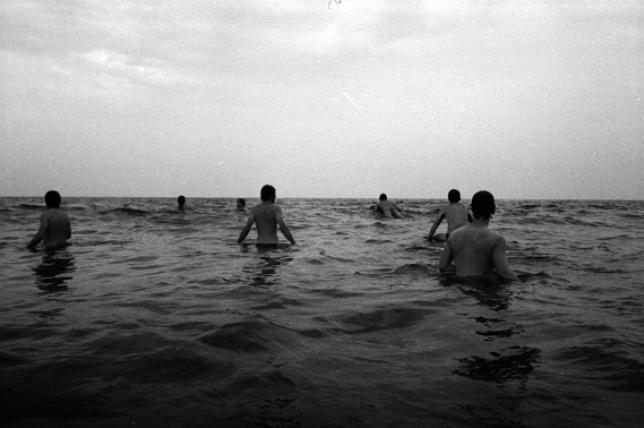
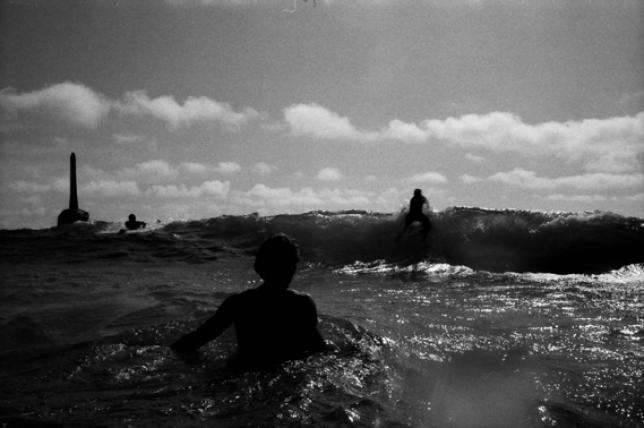
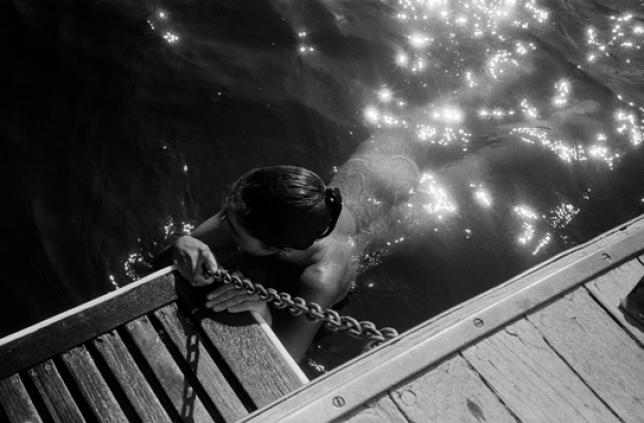
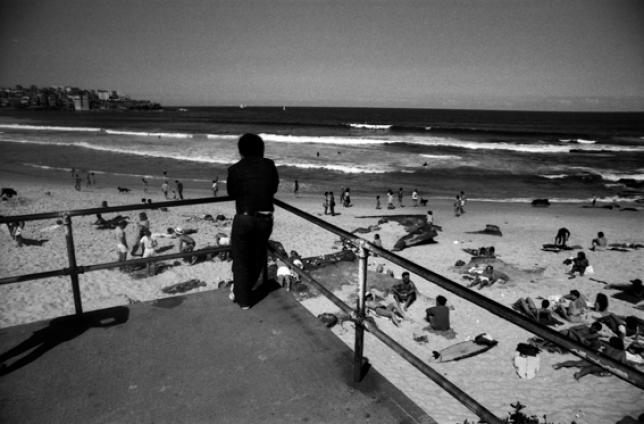
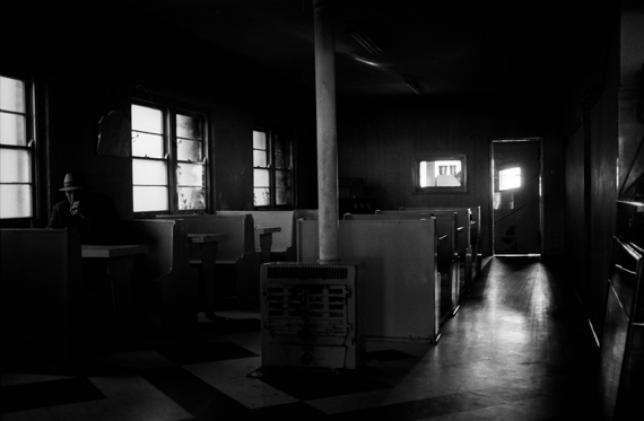
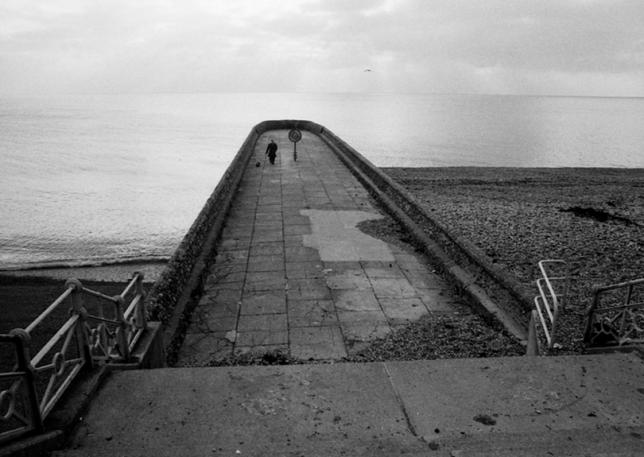
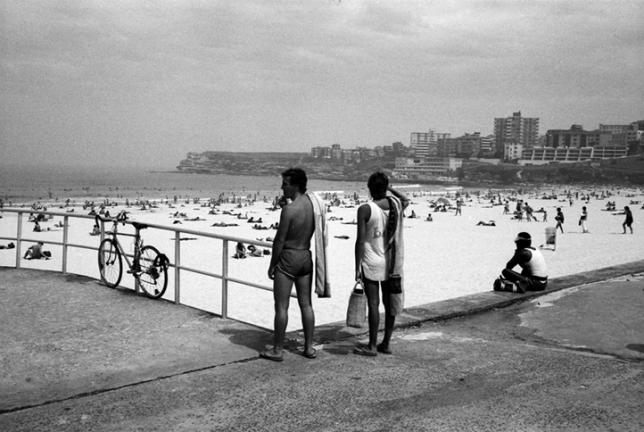
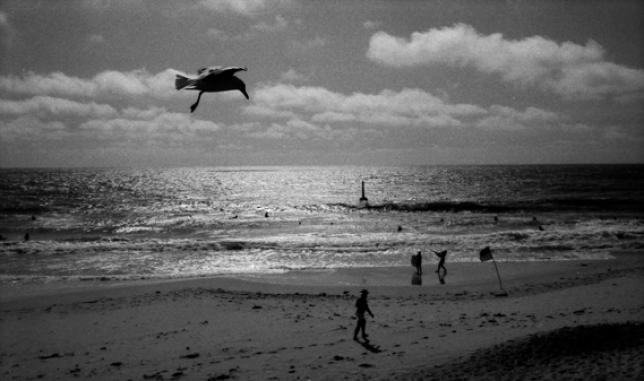
In Photography and cinema David Campany writes of cinema’s difficult relationship with the freeze frame, ‘a tempting trick [that] has given rise to as many blunt clichés as thoughtful insights about stillness and movement’ (2008: 53). ‘Cinema tends to freeze the idealized instant—the pinnacle of the action, the clearest facial expression or the perfect composition. In other words, it is drawn to the moments that photographers tend to prefer’ (2008: 55).
Photographers, to put it round the other way, might thus be understood to be aspiring to produce the ideal freeze frame: one that retains an implied contextual penumbra of surrounding images or actions, while avoiding such detail or specificity in that context as might detract from the magic of the ‘frozen’ instant.
I should qualify ‘photographers’ by saying something like (to use an old term) ‘street photographers’. There are at least as many approaches to the photographic image as there are people with cameras, but for those who roam urban landscapes hoping to distil one single instant in the swirling human flow—an instant that somehow stands for what has come before, and for what will, or might, come after—this crystallised moment is the rough jewel that sparkles in the sand. It is the instant celebrated through the photographs in Henri Cartier-Bresson’s book Images à la sauvette,and specifically in the title given (by his publisher) to the 1952 US edition of that book, The decisive moment.
All photographers in this ‘street’ style, or mode, aspire to the condition of Cartier-Bresson; but the street is long and the map is unclear. For the photographer, there are two important times: the brief moment of capturing the image, wherein the felt reward of successful timing may best be compared to the feeling of a successful golf swing or tennis shot; and the subsequent long period of disappointment in which one surveys one’s own pictures, and contemplates how they might have been better. The photographs presented here are some of my own melancholy aspirations; my nearly-decisive moments
Campany, David 2008 Photography and cinema, London: Reaktion Books—Exposures
Cartier-Bresson, Henri 1952 Images à la sauvette, Paris: Editions Verve
Cartier-Bresson, Henri 1952 The decisive moment, New York: Simon and Schuster